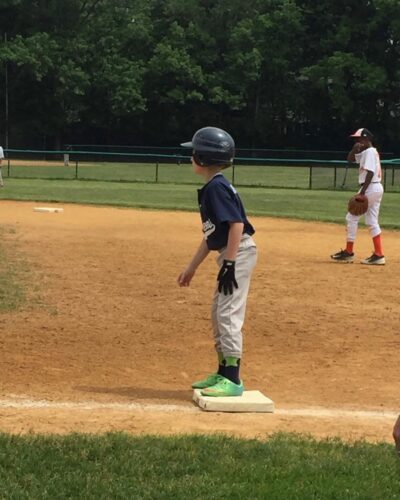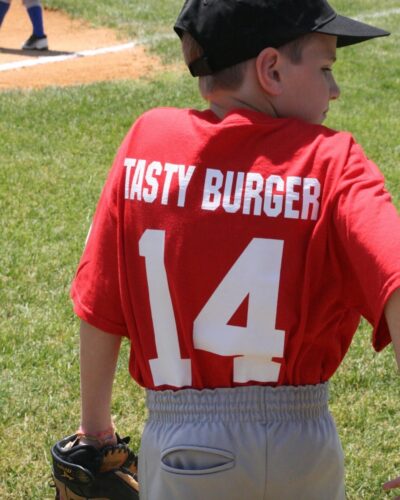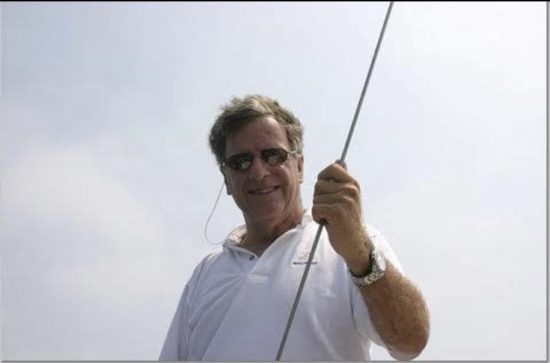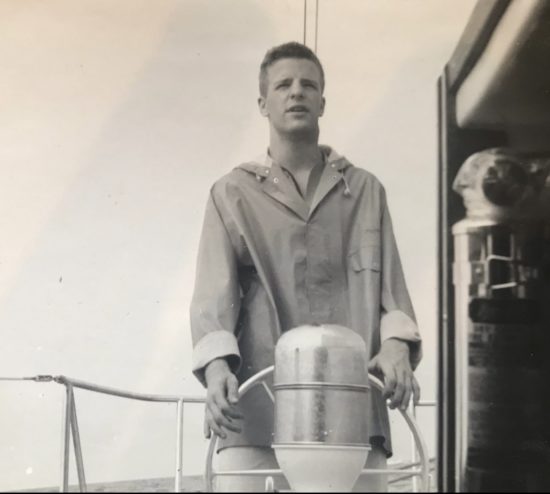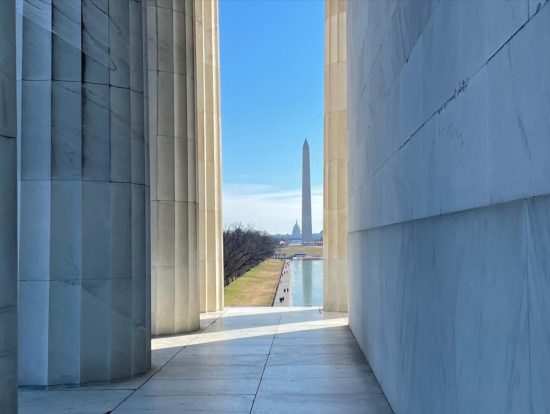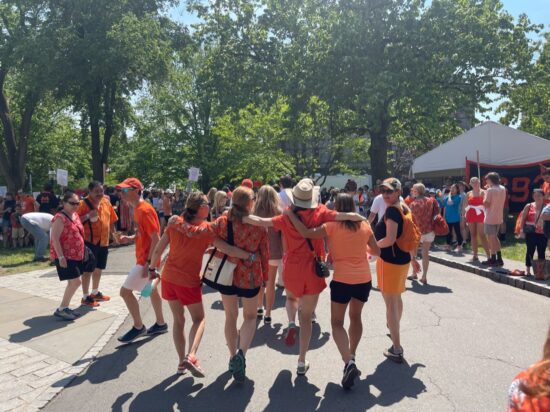
Celebrated my 26th (belated 25th) reunion from college last weekend. How is that possible? We just graduated. Above is my favorite photo of hundreds from the weekend. Arms around each other. Walking away. The woman on my left is my roommate and was one of our bridesmaids. The woman on my right is Whit’s godmother. How lucky I am to still count as dear the women I met in the fall of 1992.
Saw a Harvard grad walking by our house this morning in cap and gown, on her way to commencement.
It reminded me of all the years I wrote about commencement, about this bittersweet season of endings and beginnings. I wrote this in 2017, when both children graduated from the school they’d been at since pre-K. They both left that year. I remember sitting with all four grandparents in two different gyms for both kids on the same day. Four months later both of our dad would be gone. The breathtaking impact of the fall of 2017 is still sinking in.
But today I’m thinking of endings and beginnings, of how we say goodbye to years as the world bursts into bloom, of how my soul still functions on the school year calendar. Grace is home from college, Whit has one more week, and then it’s summer. Time is flying faster and faster, which is both the world’s tritest cliche and its deepest truth.
*** also, I am aware of what a huge privilege it is to write these words and to mourn time’s passage with my healthy, living children.***
Words from 2017 and 2013, still true now:
Tomorrow, both children graduate – Whit from sixth grade and Grace from eighth. At the school they’ve both been at since they were four, sixth grade and eighth grade are inflection points (the other is twelfth grade), so they each have graduation ceremonies. As you can probably imagine, I’m perpetually in tears these days and expecting an emotional day tomorrow. I did my last pickup at the gym. I packed the last lunch of my career as a mother. Etc. Etc. Etc. The lasts are coming thick and fast right now, and I’ll be honest, I’m trying to catch my breath and keep my balance.
This time of year always feels this way to me, limned with endings and loss despite its perch at the moment that my favorite season, summer, bursts into reality. I have written a lot about how this season of ends and beginnings feels for me. This year the complicated emotions are stronger than ever, with both children moving on (and in particular with Grace leaving for boarding school).
There’s something about the word, commencement, that captures all the conflicting emotions that are bound up in this moment. This moment every year, but perhaps, most of all, this moment in my life right now. Grace and Whit are, as I’ve written before, taking flight. I’m so proud I ache, but I’m also keenly aware of something big coming to an end.
So much radiance. So much sorrow. Inextricably wound together, twisted through every hour. Tomorrow, we commence. Onto the next thing, into the onrush of time, keenly aware of all that’s glorious and all that’s lost, always, at the same time.
***
Years ago I described the fleeting nature of time as the black hole around which my whole life circles, the wound that is at the center of all my writing, all my feeling, all my living. Certainly that seems to be borne out by what it is I write, over and over again. At the very midpoint of the year, the sunniest, longest days, I find myself battling an encroaching sorrow, an irrefutable sense of farewell. The proof is in my archives.
The world bursts into riotous bloom, almost as though it is showing off its fecundity. The days are swollen and beautiful, the air soft, the flowering trees spectacular. The children gleefully wear shorts to school, the sidewalks are dusted with pollen and petals, and we round the curve of another year. We start counting down school days, we say goodbye to beloved babysitters who are graduating from college, and I find myself blinking back tears.
Every year, I’m pulled into the whitewater between beginnings and endings that defines this season. I can barely breathe.
It’s all captured in the event that so many of us attend, year after year, at this time: commencement. It was my own commencements that marked this season, for years: from grade school, high school, college, graduate school. And then there was a time when, though I wasn’t personally attending commencements, I felt their presence, sensed the ebb and flow of the school year. It seems that my spirit and the very blood in my veins will always throb to the cadence of the school year. And now it is my children who commence, who close a year and begin another, wearing too-long hair and legs, vaguely tentative smiles, and white.
Commencement. Isn’t this word simply a more elegant way of describing what might be the central preoccupation of my life? You end and you begin, on the very same day. You let go of something and while that I-am-falling feeling never goes away, you trust that you’ll land. And you do, on the doorstep of another beginning, a new phase, the next thing.
No matter how many times I’m caught from the freefall of farewell by a new beginning, though, I still feel the loss. As much as my head understands that endings are required for them to be beginnings, my heart mourns what is ending. That a seam of sorrow runs through my every experience is undeniable; it may sound depressing, but I genuinely don’t experience it that way. It is just part of how I’m wired, and it’s never closer to the surface than right now, as this school year winds down, as we celebrate the beginning that’s wrapped in the end, as we commence.
